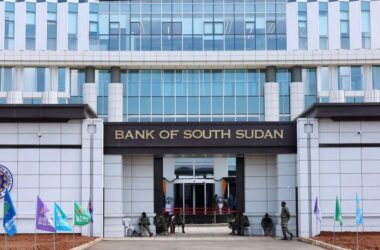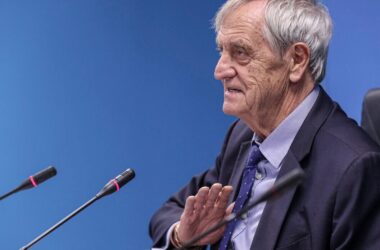
By Taban Henry
The Episcopal Church of South Sudan (ECSS) and residences of Malakia in Juba yesterday disagreed on land use; an issue which they described as a longtime problem starting from the 1980’s.
Speaking in an exclusive interview with No.1 Citizen Daily Newspaper, Amna Ramadan Juma Wani Kumuri a resident of Keriya of Malakia suburb said that the disagreement came after the Episcopal Church of South Sudan decided to construct a church within the playing ground, which the residences disapproved but the church insisted that it was offered to them after the elders of the area were unable to travel to farther areas for prayers.
She said that the playing ground existed long before they were born adding that they had a lot of activities to do in the playground.
“We started the work of Kashava in this playing ground. After our number increased, the authorities decided to give us an office and after the visit by the government, we were given the youth center currently in Nimira Talata,” she said.
Amna added that they did not reject the church because they know the good values that the religious centers incorporate into the community and the additional infrastructures like roads, water and security in the area due to the presence of churches and mosques.
She emphasized the importance of having a playground in the community which is holding many community functions since they provide space.
“We also share with the churches because our plots are very small so when we have celebrations, we cannot be able to do it here in the area. Functions like marriages, funeral rites, community meetings and dancing. This ground would help us in these kinds of activities even when the church, the community even the children play football here all the activities are being done on the playing ground,” Amna stated.
She stressed that the origin of the land dispute was way back in 1994 after people scattered; with some going to Khartoum and others to other parts of the country and those that returned settled there and requested for a small portion of that land to build a church for prayers leaving the other side of the land as a playground for the Malakia residents.
“The elders accepted and said they don’t want the Christians to be left out because we are Muslims so they can go ahead, all our preaching goes to the living God but it should be small. Indeed, they build a small grass-thatched house and they were praying in every Sunday and it was not only for one tribe but all the tribes were coming especially for those who wish to pray in this church,” Amna said.
She added that the community members of Malakia gave the church a go ahead to construct a small church in the past because their elderly people were unable to go to the far away churches.
“After the number of the faithful increased, they decided to increase the constructions. This annoyed the population because of expanding the building and this has been helping both the church and the community of the area but the agreement was temporary,” she clarified.
For his part, the Arch-Bishop of the Episcopal Church of South Sudan; Justin Badi Arama said that the area was acquired and dedicated by the then second Arch-Bishop of Sudan Benjamin Wani Yugusuk in 1986, during which the church was constructed with local materials but they thought of putting a concrete foundation of the church in Malakia this year.
He added that they are planning to lay down the foundation stone for the construction of St. Mathew parish formerly known as Mirinyanyar Parish.
“Soon, we shall be putting the foundation stone so that the construction continues. From the start, there has been some resistance but we have the rights and we have all the papers of the place and the place belongs to us and the church is not for an individual it’s for the community and we welcome everybody around to use the compound and the church as well because it’s for the community; of God’s people,” he said.


